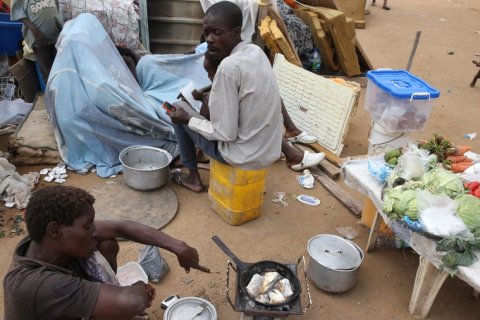According to data from the United Kingdom's Royal Institute of International Affairs (Chatham House), African countries owe US$696 billion, a fivefold increase compared to the beginning of the millennium, with 12 percent of that amount due to Chinese creditors.
The study analyzes seven countries in detail, including Angola, and points out that the debt-to-GDP ratio has improved in recent semesters, essentially due to the appreciation of the kwanza and the growth of the economy, improving from 130 percent in 2020 to 86.4 percent in 2021, and falling again to 56.6 percent in 2022, but the cost of debt service is expected to be close to 13 billion dollars in 2022, of which 38 percent refer to external debt.
Angola, incidentally, owes more to China than the next three countries, exceeding the sum of 13.7 billion dollars from Ethiopia, 9.8 billion dollars from Zambia and 9.2 billion dollars from Kenya, according to Chatham Casa, Lar.
"The payment, relief and cancellation of the debt remains a priority for the government of President João Lourenço in the second term, which began in September 2022, as well as diversifying external partnerships beyond the overdependence on China", reads the study by Chatham House, which points out that the debt of African countries should be seen as "a global priority".
China has been the biggest creditor of African countries in recent decades, surpassing the United States, the European Union and Japan, but researchers at Chatham House point out that "far from being a sophisticated strategy to appropriate African assets, loans from China, at an early stage, may have created a debt trap for China, which became deeply entangled with African partners, who are increasingly mature and assertive".
The Asian giant is Zambia's biggest creditor, for example, the first country to enter into Financial Default following the covid-19 pandemic, and the economic consequences not only of the pandemic, but also of the invasion of Ukraine by Russia, made other countries stop paying their debts, as is the most recent case in Ghana.
According to the criteria of the World Bank and the International Monetary Fund (IMF), 22 of the 54 African countries are over-indebted, including all Portuguese-speaking countries.
The Chatham House analysis also shows that China is changing its interaction with African countries, having put a strong brake on disbursements, which went from 28.4 billion in 2016 to 8.2 billion dollars in 2019 and just 1.9 billion dollars in 2020, during the pandemic.
The debt crisis affecting African countries has motivated an intense debate among academics, multilateral banks, analysts and investors, with several observers arguing that the current level of the debt-to-GDP ratio, between 60 and 70 percent , is unsustainable taking into account the rise in interest rates by western central banks and the increase in inflation, particularly in food and energy goods, which adds to the high price that investors charge to lend money to African countries, perceived as riskier in terms of payment credibility.







